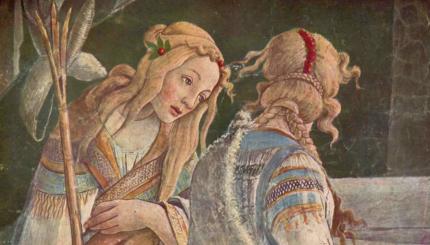Parshat Shmot which we read this week contains one of the most bizarre incidents in all of the Torah. By putting it in its psychological context and reading it as psycho-drama, we may comes to terms with it and uncover its deeper meaning.

Moshe Rabanu (Moses our teacher) grew up in the royal palace of Egypt and was raised by the daughter of Pharoah. As a youth his connection to his birth family was apparently non existent, or tenuous at best. He was nurtured among the Egypt aristocracy – dressed like them, talked like them. He was educated like them and indeed was one of them. Yes, he harbored some vague memory of his biological roots, which comes to the fore in a late adolescent identity crisis. He goes forth from the palace to “see his brethren”. Deeply touched by their desperate plight, his empathy is aroused and he strikes out at a cruel Egyptian taskmaster and kills him. The crime is witnessed by none besides the Hebrew slave that Moshe had rescued, but none the less the next time he approaches the slaves he is taunted for his crime. Word of his act reaches the Egyptian authorities and a warrant is put out for his arrest. Moshe is forced to flee to Midian.
He becomes a man without an identity. The Israelites with whom he might have thought to reconnect, have stabbed him in the back. The Egyptians with whom he shares a common culture have turned against him. He is forsaken and utterly alone. In Midian he is taken in by the local idolatrous priest and begins life anew. He marries Tzipora, his benefactor’s daughter. Moshe gains a family and an identity – he becomes a Midianite shepherd. The memories of Egypt recede, as do those of the enslaved Hebrews. For approximately sixty years Moshe lives a quiet life in Midian.
And then his simple life is shaken to the foundation by the Voice that echoes out of the Burning Bush, the Voice that forces him to unearth the distant memories that he has all but forgotten. He hears about the bondage and suffering of his long lost brethren, about a covenant forged by Abraham with a mysterious and hidden God who now commands him to return to Egypt, stand up to the despotic Pharaoh, and lead the Hebrews to freedom in the Promised Land.
Moshe is reeling, sent into a psychological spiral by this frightening Voice and its utterly outlandish demands. How could he return to the land that made him a fugitive and to the people that rejected and betrayed him? What connection could he possibly forge with those distant wretched slaves? Why would he want to leave his comfortable life and identity and become a crusader on a suicidal mission? So Moshe refuses to accede to the demands of the Voice. But it is unrelenting. Moshe stands his ground but the Voice does not back down. Yes – no. Yes – no. They go back and forth. Five times God comes at him. And at the end of the encounter, God reiterates His request/command and disappears … and Moshe is left utterly alone. If he intended to refuse one last time, there is no one there to hear his refusal.
Will he go back to Egypt? We do not know and either does he. He is completely confused, hurt, lost. He packs up the family for a journey in order “see if his brethren in Egypt are still alive”. Not a word about leading them out of slavery, for he does not know what he will do. And neither does he know any longer who he is at all.
“At a night encampment on the way, the Lord encountered him and sought to kill him. So Tzipora took a flint and cut off her son’s foreskin, and threw it at his legs, saying, You are indeed a bridegroom of blood to me. He then released His grip upon him, and she added, Bridegroom of blood – to the circumcised!”
Moshe experienced God as trying to kill him. Perhaps waking up at night in a cold sweat, after thrashing about for hours in the darkness while wracked by nightmarish questions of personal identity and doubts concerning his own adequacy, Moshe can take it no longer. He cries out in anguish in the dead of night. Tzipora awakens, realizing that her husband is in the throes of a complete breakdown. She takes things into her own hands, in a flash circumcising the couple’s young son, thereby making a powerful statement and showing her husband where his true loyalty must lie. We are of the circumcised she tells him, the blood covenant of circumcision will define who we are from this point forward. My husband – let there be no more equivocation, says she to him.
And Moshe at that moment experiences catharsis. The tension is broken. He now knows with utter certainty who he is and what he must do. The doubts are gone, the tensions resolved. Everything becomes clear. It is as if God has released the death grip upon him and he has been granted a new identity, and new lease on life. The man Moshe comes full circle and returns to his roots and to his true self. Through the sacrificial act of Tzipora, Moshe is transformed from a Midianite shepherd into the leader of the Israelites. The bridegroom of circumcisional blood will now make his way to the people whose identity will be cut in their flesh. And the Israelites will be redeemed!
Moshe
Pronounced: moe-SHEH, Origin: Hebrew, Moses, whom God chooses to lead the Jews out of Egypt.


